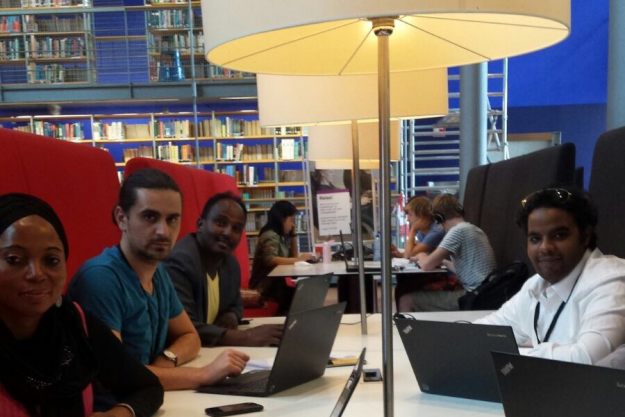
Associate Programme Alumni
THE HAGUE, Netherlands — 16 January 2017 — The fourth online meeting of Associate Programme Alumni, held from 12-18 December 2016, was celebrated as a success last month as graduates contributed suggestions on improving curricula, based on recent industry experience and best practice.
“The high turnover of 54 individuals who attended the session demonstrated alumni’s interest in staying engaged with the OPCW and with other graduates. We are proud to have created a dynamic community of professionals who support and inspire each other, and serve as a source of expert knowledge for the Organisation,” stated OPCW’s International Cooperation Officer, Mr Dawsar Drissi, moderator of the virtual meeting held on the Alumni Network Facebook page.
The constructive discussions between the participants who actively took part to the event allowed for effective brainstorming about the relevance of the programme content, further improving its curriculum, as well as the potential contribution of the Alumni Network to the worldwide celebration of the 20th anniversary of the Chemicals Weapons Convention and the establishment of the OPCW. The rich exchange of views resulted in more than 20 valuable recommendations.
“Many new proposals emerged during our discussions. We are glad that the OPCW listens to us, and shows interest and support for our activities, even after we have completed the Programme. It motivates us to continue to advance the cause of the OPCW in coordination and with the backing of national authorities,” a 2014 graduate, Mr Manuel Sanchez of Peru, commented during the closing session of the virtual meet-up.
Since its inception in 2000, the OPCW Associate Programme has evolved into a major international training project, focusing on the peaceful uses of chemistry and fostering the economic and technological development of OPCW Member States.
Background
As the implementing body for the Chemical Weapons Convention, the OPCW oversees the global endeavour to permanently eliminate chemical weapons. Since the Convention’s entry into force in 1997 – with its 192 States Parties – it is the most successful disarmament treaty eliminating an entire class of weapons of mass destruction.
To date, nearly 94 per cent of all chemical weapon stockpiles declared by possessor States have been destroyed under OPCW verification. For its extensive efforts in eliminating chemical weapons, the OPCW received the 2013 Nobel Prize for Peace.
